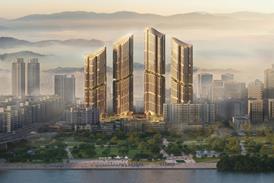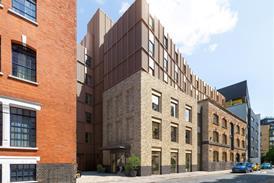- Home
 Heatherwick unveils designs for first residential project in South Korea
Heatherwick unveils designs for first residential project in South Korea Architecture practices monitoring Middle East teams as Iran conflict escalates
Architecture practices monitoring Middle East teams as Iran conflict escalates Green light for Ackroyd Lowrie’s co-living redesign of SPPARC office scheme in Bermondsey
Green light for Ackroyd Lowrie’s co-living redesign of SPPARC office scheme in Bermondsey Reuse of historic buildings dominates 2026 RIAS Awards shortlist
Reuse of historic buildings dominates 2026 RIAS Awards shortlist
- Intelligence for Architects
- Subscribe
- Jobs
- Events

Events calendar Explore now 
Keep up to date
Find out more
- Programmes
- CPD
- More from navigation items
Civil servant knew there was a ‘clear risk’ of a major ACM fire three years before Grenfell

Inquiry hears Brian Martin failed to warn fire and rescue chief and instead ‘lulled’ him into false sense of security
The senior civil servant responsible for fire safety guidance knew there was a “clear risk” of a major cladding fire three years before Grenfell but failed to warn the government’s chief fire and rescue advisor.
Brian Martin, who was in charge of fire safety regulations in buildings for nearly 17 years before the Grenfell Tower fire, told the inquiry into the 2017 blaze that he “didn’t really know” why he had not warned Peter Holland in a February 2015 email exchange about the dangers posed by the use of combustible ACM panels in the UK.
…
This content is available to registered users | Already registered?Login here
You are not currently logged in.
To continue reading this story, sign up for free guest access
Existing Subscriber? LOGIN
REGISTER for free access on selected stories and sign up for email alerts. You get:
- Up to the minute architecture news from around the UK
- Breaking, daily and weekly e-newsletters
Subscribe to Building Design and you will benefit from:

- Unlimited news
- Reviews of the latest buildings from all corners of the world
- Technical studies
- Full access to all our online archives
- PLUS you will receive a digital copy of WA100 worth over £45
Subscribe now for unlimited access.


